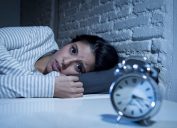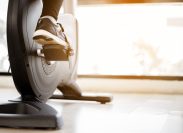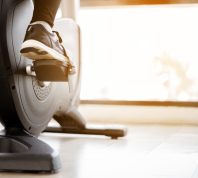20 Doctor-Approved Tips to Get a Full Night's Sleep Tonight
Trouble sleeping? These hacks can help you catch more Zzz's.
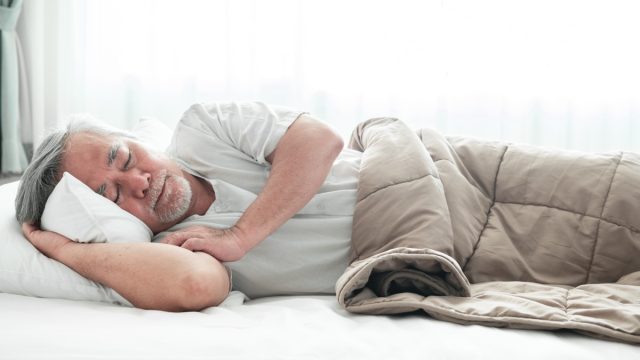
Sometimes a full night's sleep is hard to come by. No matter how many sheep we count or white noise machines we invest in, many of us find ourselves either still wide awake in the wee hours, or waking up multiple times throughout the night. If you're struggling to get enough rest at night, these doctor-approved tips can help.
From what you drink (and when you drink it) to what you listen to before bed, read on for 20 tips that might help you fall asleep quicker tonight—and stay asleep until morning.
READ THIS NEXT: Snacking on This Helps You Lose Weight and Sleep Better, New Study Says.
1
Spend 15 minutes in the sun every morning.
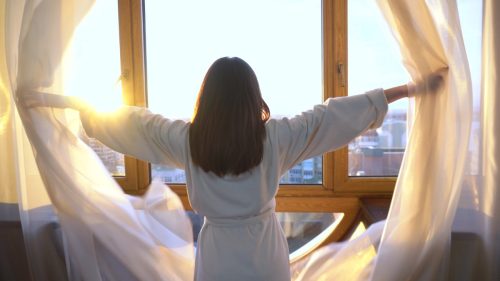
If you want to sleep like a champ, start getting your body ready for shut-eye first thing in the morning. According to sleep expert Michael J. Breus, PhD, spending 15 minutes soaking up the sunshine every morning is key to snoozing soundly at night.
"It helps regulate the production of melatonin, the sleep hormone," Breus wrote on his website. "Your internal body clock—the circadian rhythm—runs on a 24-hour schedule and functions best when you're exposed to a regular pattern of light and dark."
2
Skip that nightcap.

While you may think a drink helps you wind down at night, unfortunately, that's not the case.
According to the National Sleep Foundation, alcohol might make you feel tired, but it actually makes it nearly impossible to get a good night's sleep because it interrupts your circadian rhythm, blocks REM sleep, and messes with your breathing, making you more prone to snoring.
READ THIS NEXT: I'm a Pharmacist, and This Is the Sleep Aid I Recommend.
3
Cut the caffeine early.

It might seem harmless to grab another iced coffee to get through the notorious mid-afternoon slump, but that caffeinated beverage could be wreaking havoc on your sleep.
According to the National Sleep Foundation, caffeine stays in your body for much longer than you might think. After six hours, only half of what you've consumed is gone. So if you have a second cup of joe at noon, by the time you're ready to hit the hay, you might still feel pretty wired and get low-quality sleep as a result.
4
Try drinking mushroom coffee.
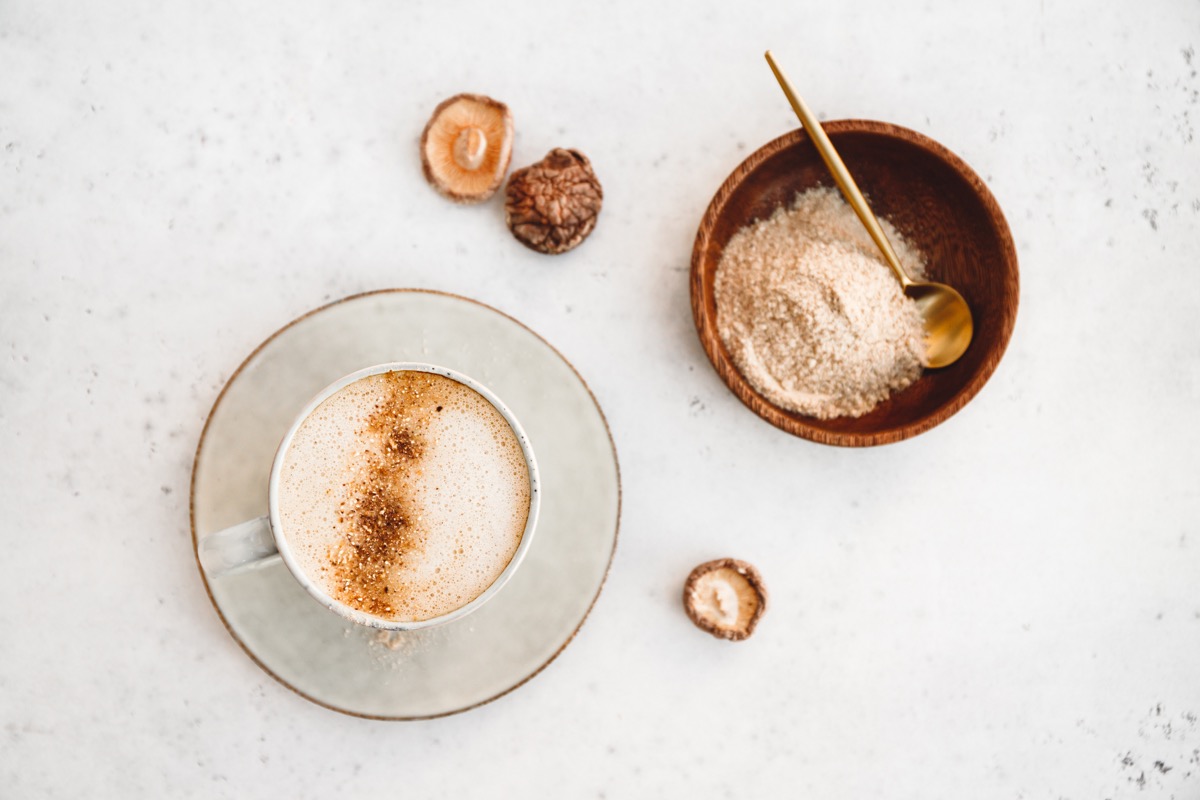
Why drink regular coffee when you can drink adaptogenic mushroom coffee? According to Breus, antioxidant-packed medicinal mushroom coffee contains half the caffeine you'd get in a regular cup of brew.
Even if you decide to have a cup in the afternoon, it won't ruin your night of sleep like the regular stuff would. In fact, it might actually help. Mushrooms have been found to reduce the effects of stress, so you can rest easy without lying in bed, panicking about an unfinished to-do list.
5
Listen to binaural beats.
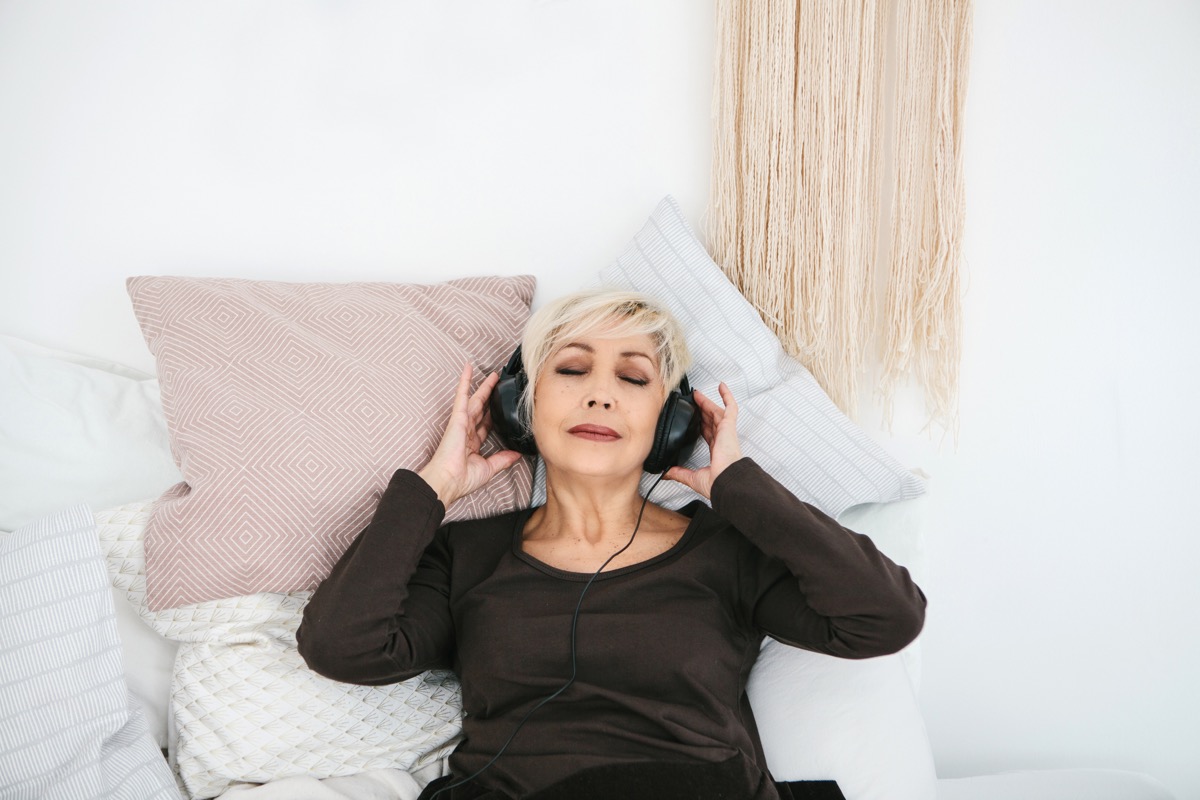
Have you heard of binaural beats? According to Breus, it's a technique of "combining two slightly different sound frequencies to create the perception of a single new frequency tone."
That leads to changes in your brain, slowing down activity and helping you relax for a better night's sleep.
6
Crack a window.
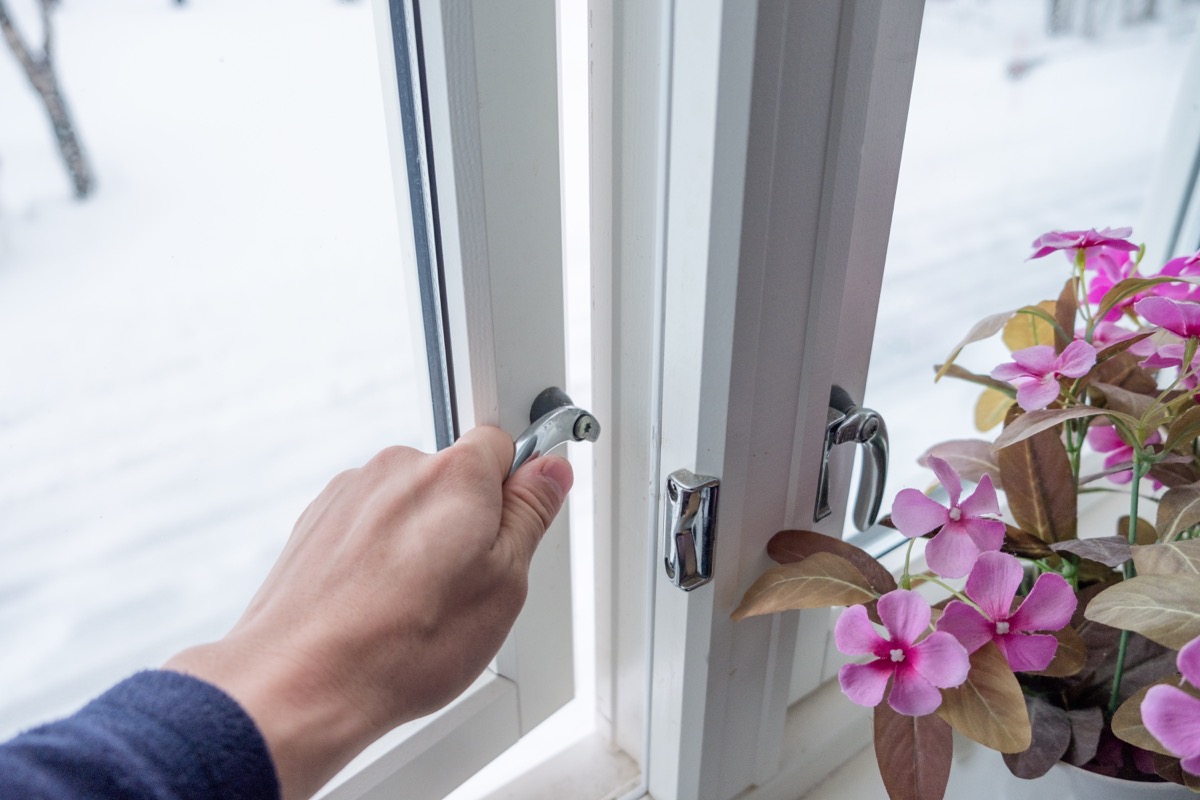
Sometimes the only thing you need to doze off until morning is cracking open a window.
A 2017 study published in the journal Indoor Air analyzed 17 participants over five nights and found that those who had a breeze blowing in their bedroom had lower levels of carbon dioxide in the air, making them sleep better throughout the night.
7
Go on a camping trip.
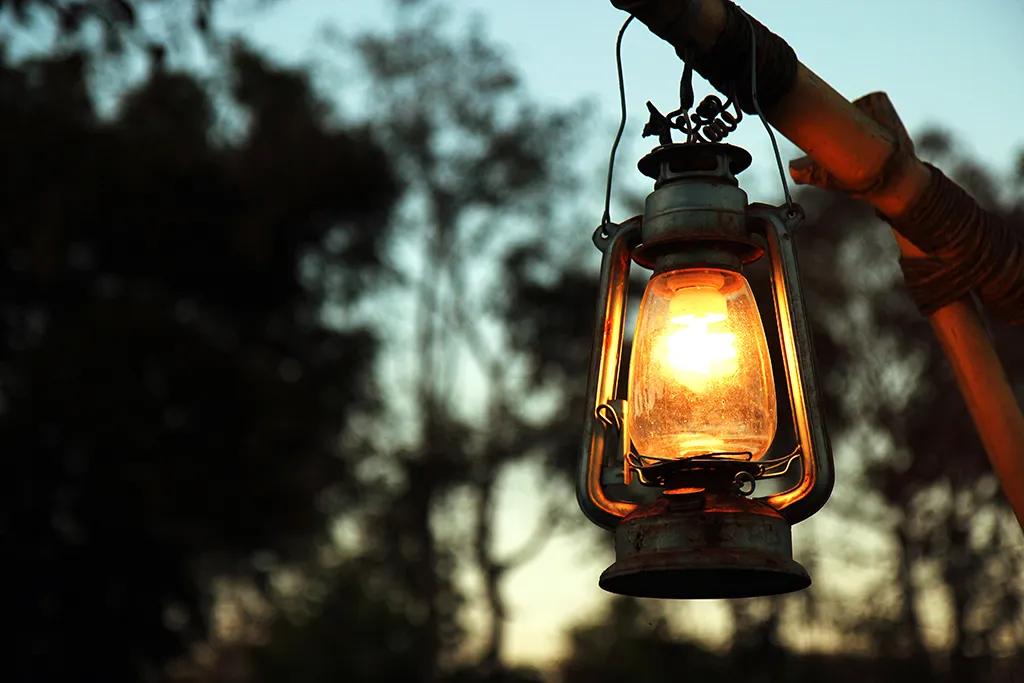
There's nothing like pitch darkness and total quiet to reset your body and get you back to quality sleep.
In a 2017 study published in the journal Current Biology, researchers found that taking a weekend camping trip and sleeping with a natural light-dark cycle—AKA the rising and setting of the sun—shifted the participants' sleep schedules—and that pattern continued even after the trip was over.
8
Bring your pup into your bedroom.
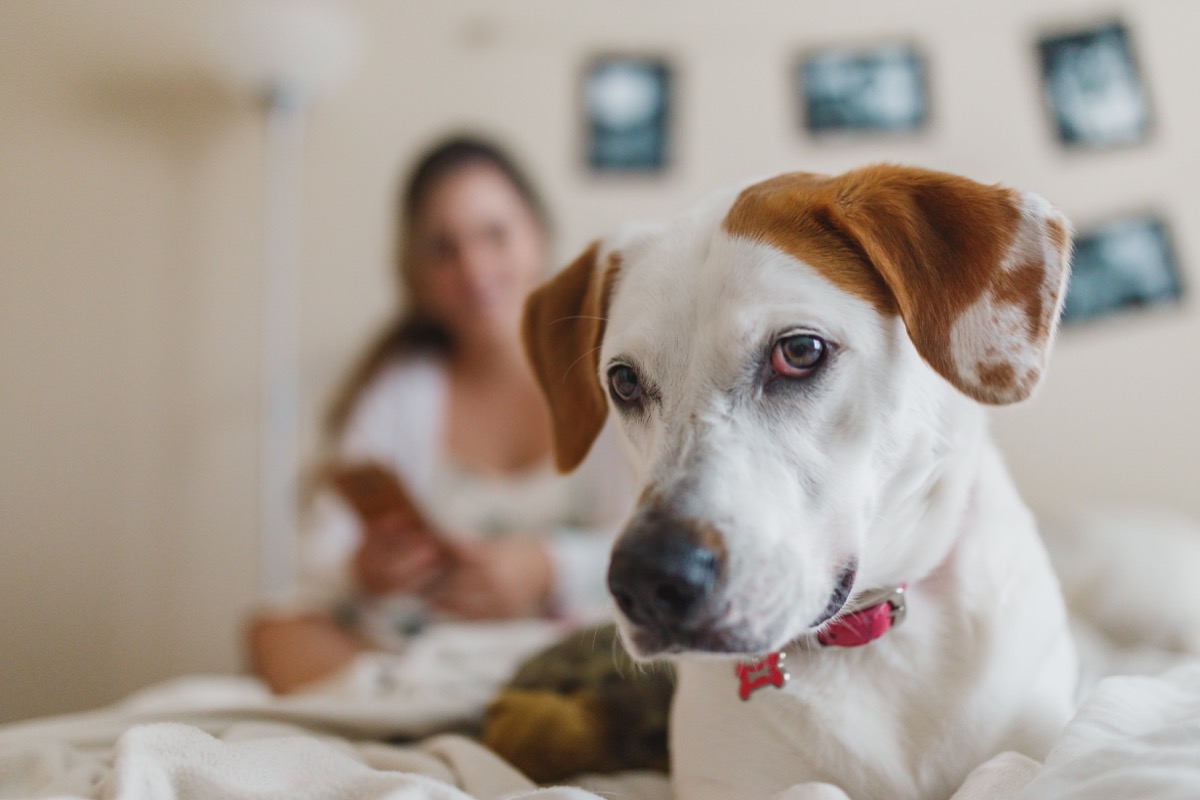
If your dog has turned into your go-to teddy bear at night, that could be a good thing. According to a 2017 study published in Mayo Clinic Proceedings, those who slept with dogs in their bedrooms actually got better sleep than those who didn't.
And it's not just because dogs are so warm and cozy, either. Having their furry friends nearby made participants feel safe, making it easier to shut down and relax after a long day. The only problem? Having your dog actually in bed with you doesn't have the same effect. Get Fido his own spot to sleep, then invite him into bed for some morning cuddles.
9
Give yourself something to look forward to.
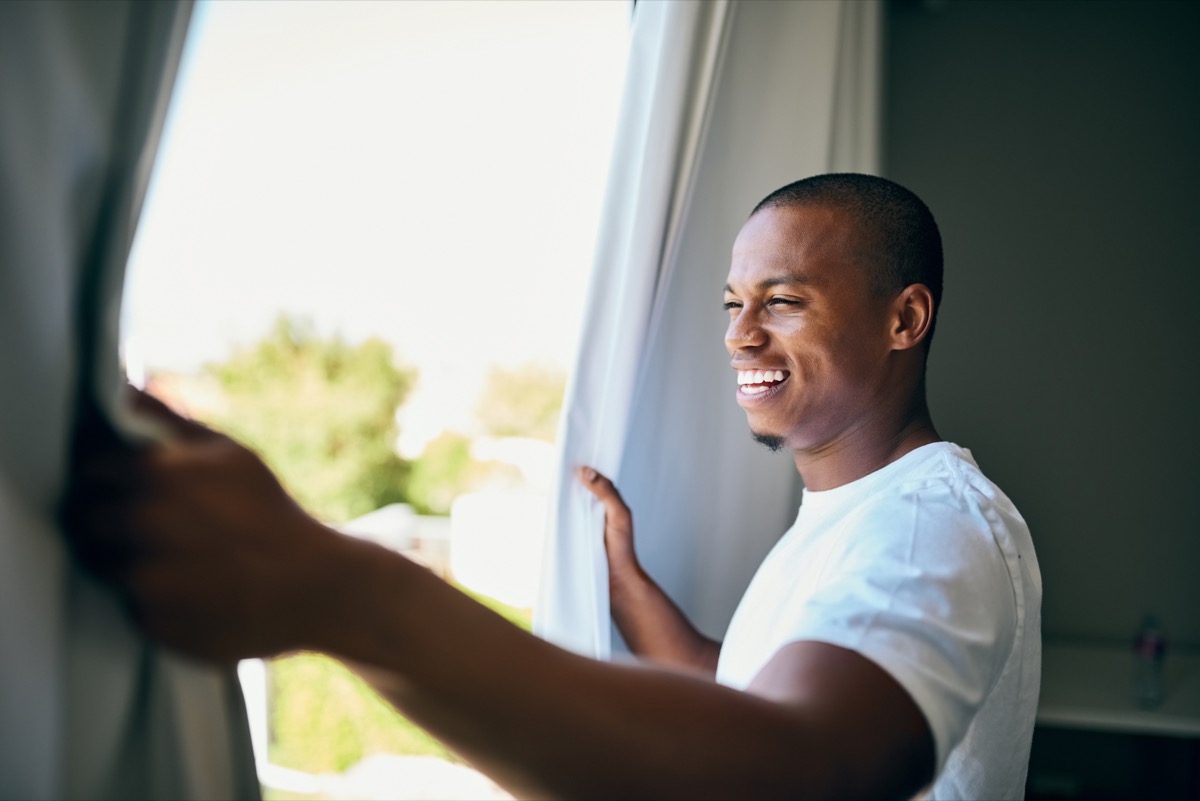
If you're not looking forward to tomorrow, how are you going to get a good night's sleep tonight?
In a 2017 study published in the journal Sleep Science and Practice, researchers analyzed 825 adults and found that those who lived their lives with meaning were 52 percent less likely to have restless leg syndrome and 63 percent less likely to have sleep apnea. Because they felt good about what the next day would bring, they had a reason to get up in the morning, making them conk out more effectively at night.
10
Try to stay awake.
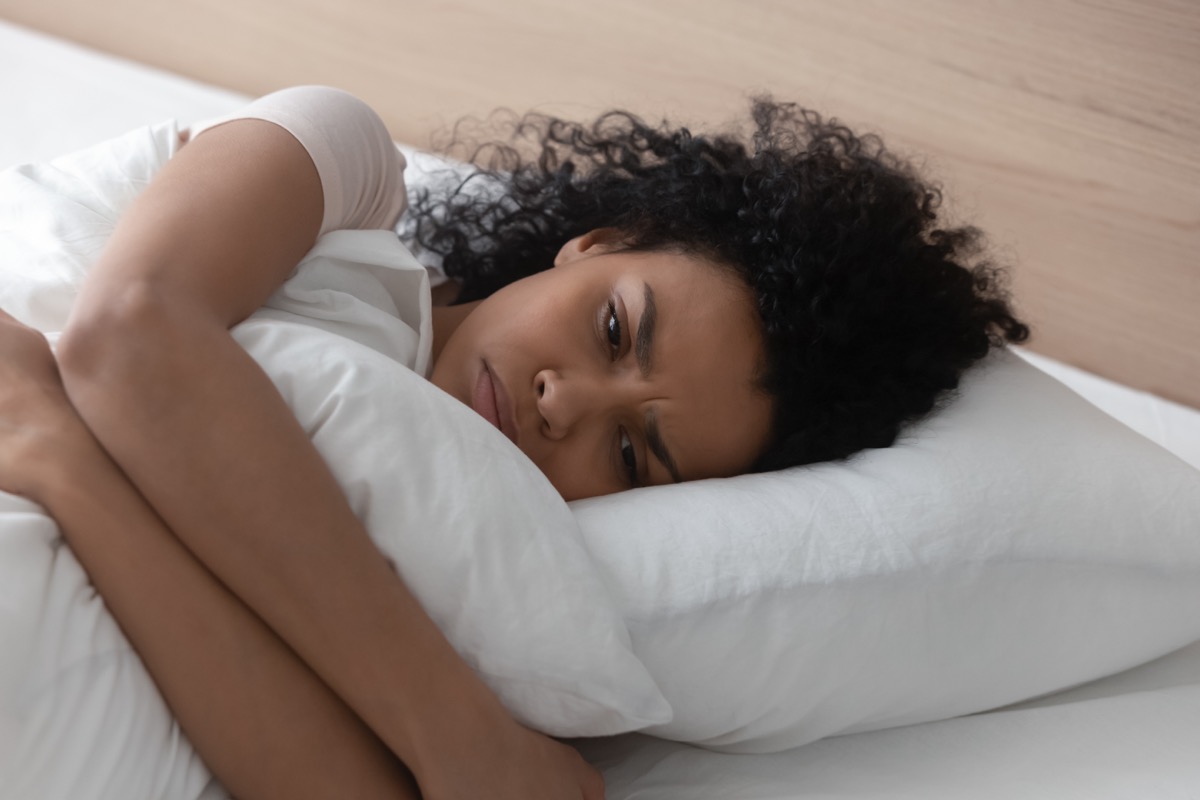
Sometimes you just need to trick your body with a little bit of reverse psychology. Instead of lying in bed trying to make yourself fall asleep and ultimately failing, the key to a full night's sleep might actually be trying to stay awake.
Yes, this sounds strange—but an oft-cited 2003 study published in the journal Behavioural and Cognitive Psychotherapy found that when insomniacs lay in bed with the intention of staying awake, they actually fell asleep faster and had a more restful night of sleep.
11
Take a mindfulness meditation class.
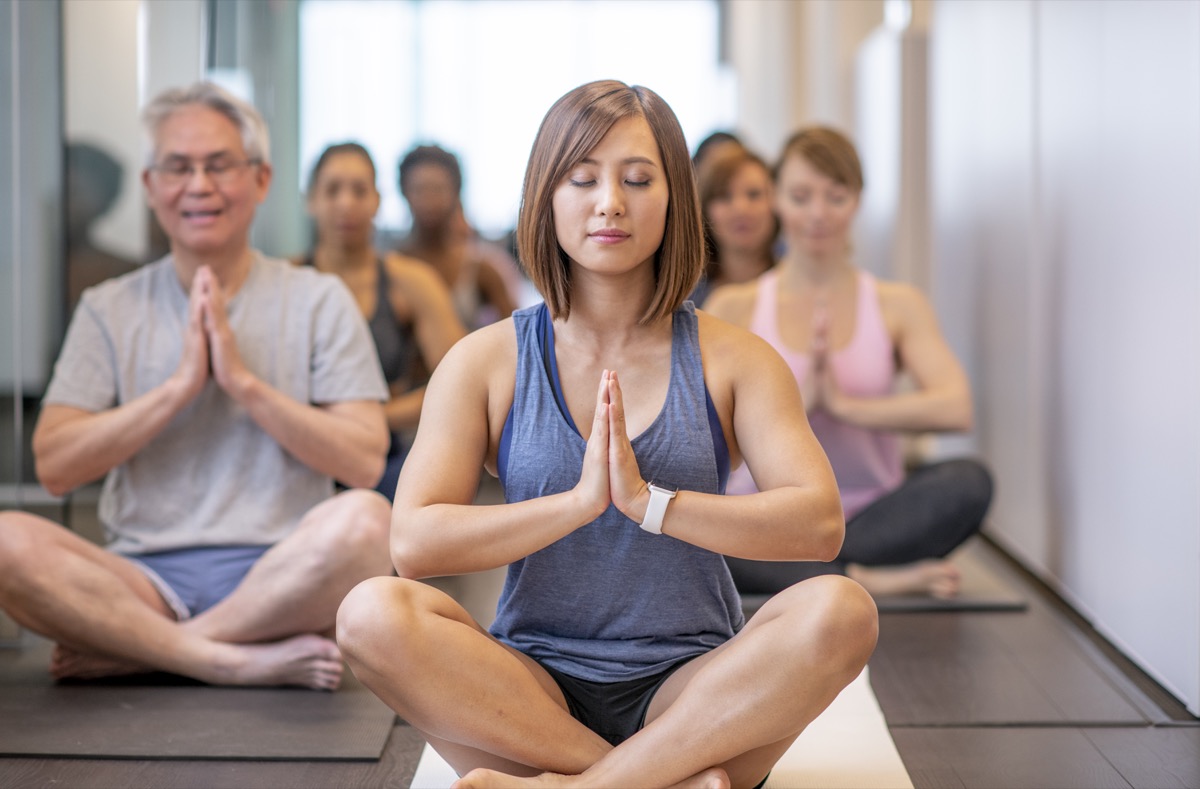
Mindfulness and meditation are hot topics these days—and for good reason.
According to a 2015 study published in JAMA Internal Medicine, those who took a mindfulness meditation class actually saw more improvement in their sleep quality than those who tried to learn better sleep techniques.
12
Stop exercising at night.
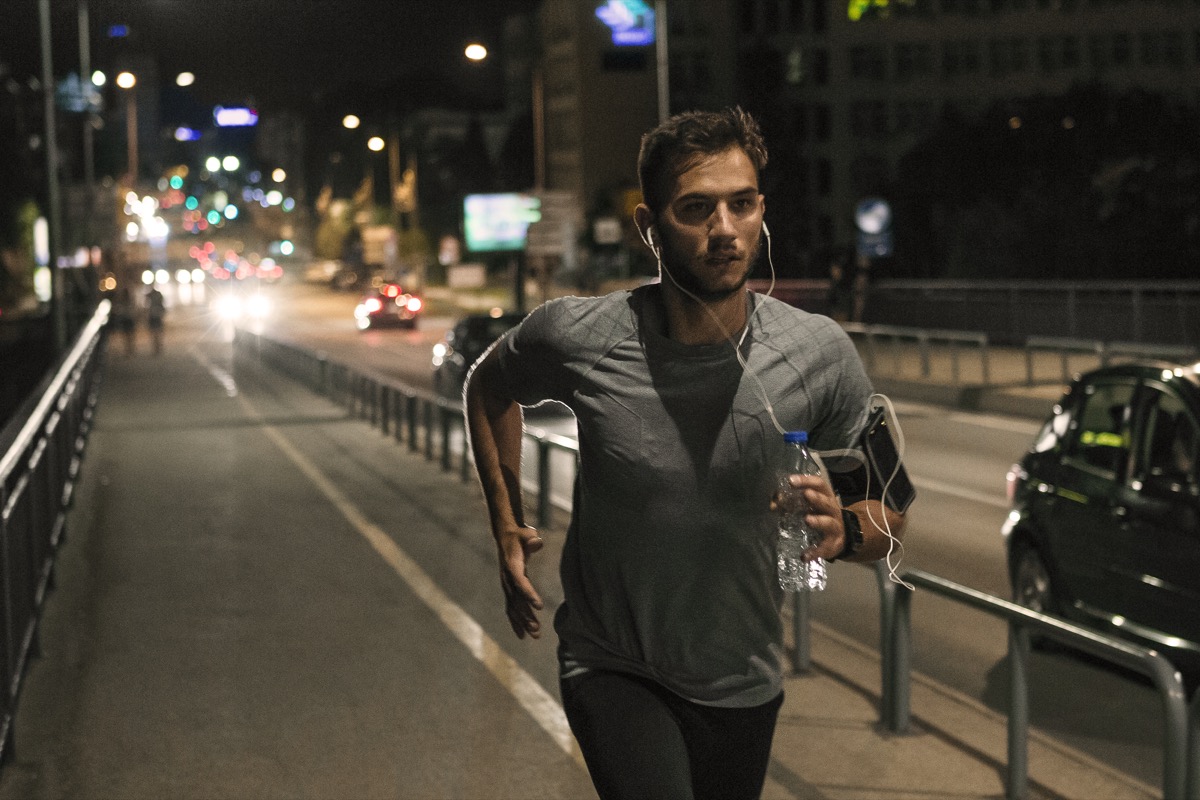
When exercising in the morning just isn't an option, it's understandable that you'd try to squeeze in a gym session right before bed.
Sure, you might get in a solid run, but the Mayo Clinic says exercising later on in the day—particularly within a few hours of bedtime—can affect both your ability to fall asleep and the quality of sleep you get once you do.
13
Pop some magnesium.

You might have heard people raving about how well magnesium helps them sleep—and they're on to something.
A 2012 study published in the Journal of Research in Medical Sciences found that when taken before bedtime, the natural sleeping pill of sorts can help improve your quality of sleep, helping you fall asleep faster, and stay asleep until morning.
14
Go nuts for nuts.
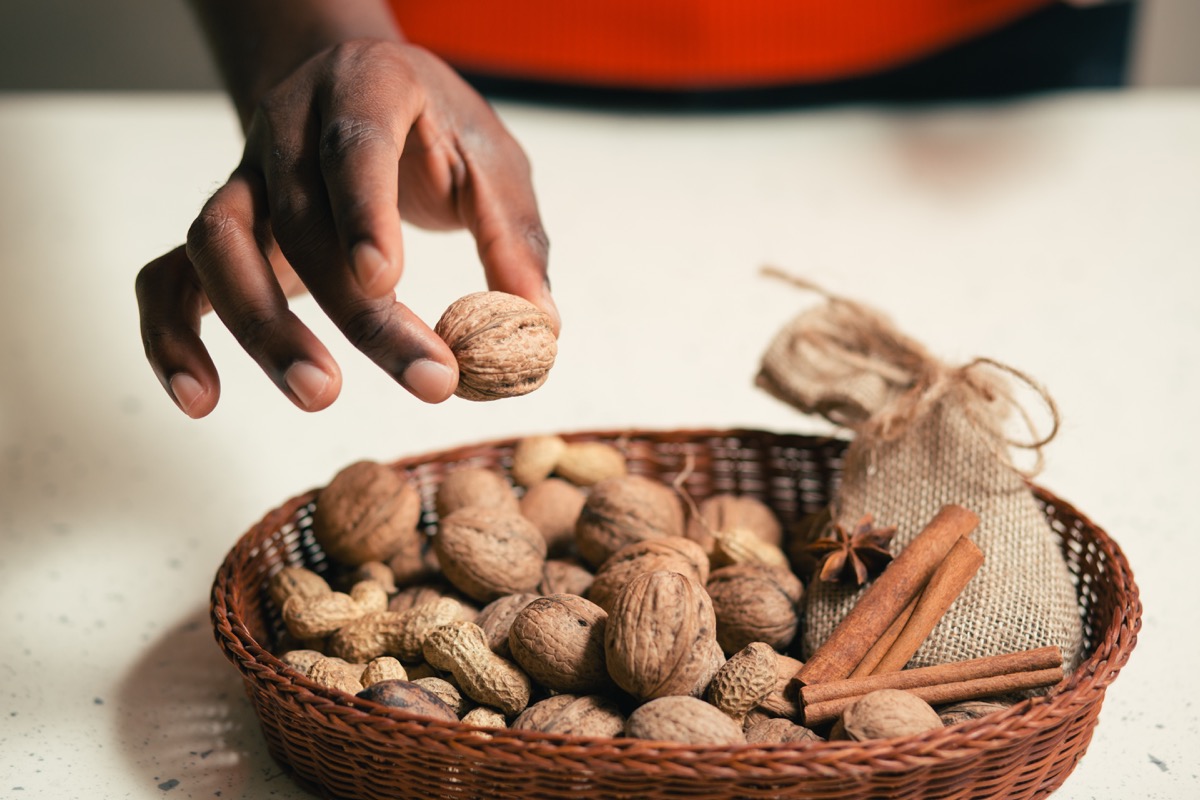
Nuts don't just make for a super healthy snack option, they also contain ingredients that will help you get a full night's sleep.
In a 2017 study published in the FASEB Journal, researchers found that eating nuts on a regular basis not only offers sleep-inducing nutrients like magnesium and selenium, but also makes the brainwave frequencies associated with sleep stronger—all things that can help you get better rest.
For more health news sent directly to your inbox, sign up for our daily newsletter.
15
Opt for printed books before bed.
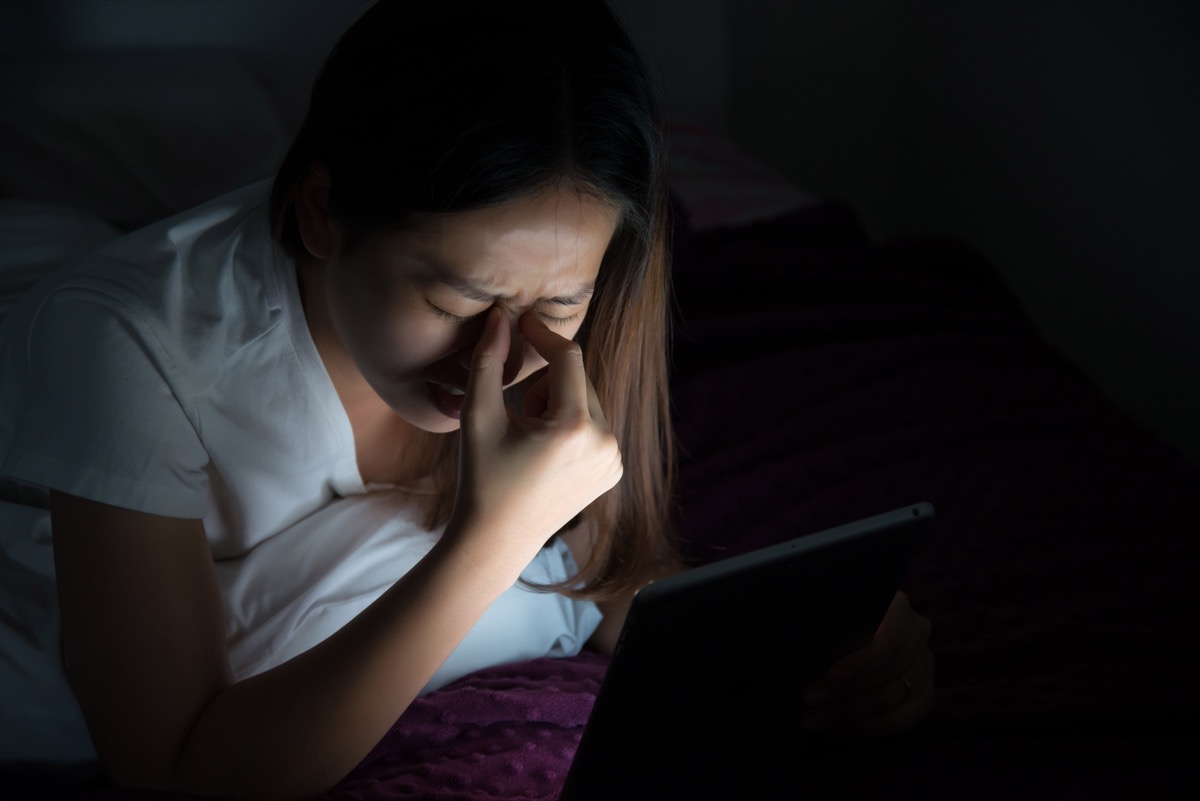
As convenient as e-readers can be, your Kindle could be messing with your sleep schedule.
In a 2014 study published in the journal PNAS, researchers found that the devices emitted blue light that leads to more restlessness and less REM sleep, making it harder to fall asleep and lowering your quality of sleep in general. So go for a good old-fashioned printed book instead! It's the same reading material and less damage to your rest.
16
Pick up a pair of blue light-blocking glasses.
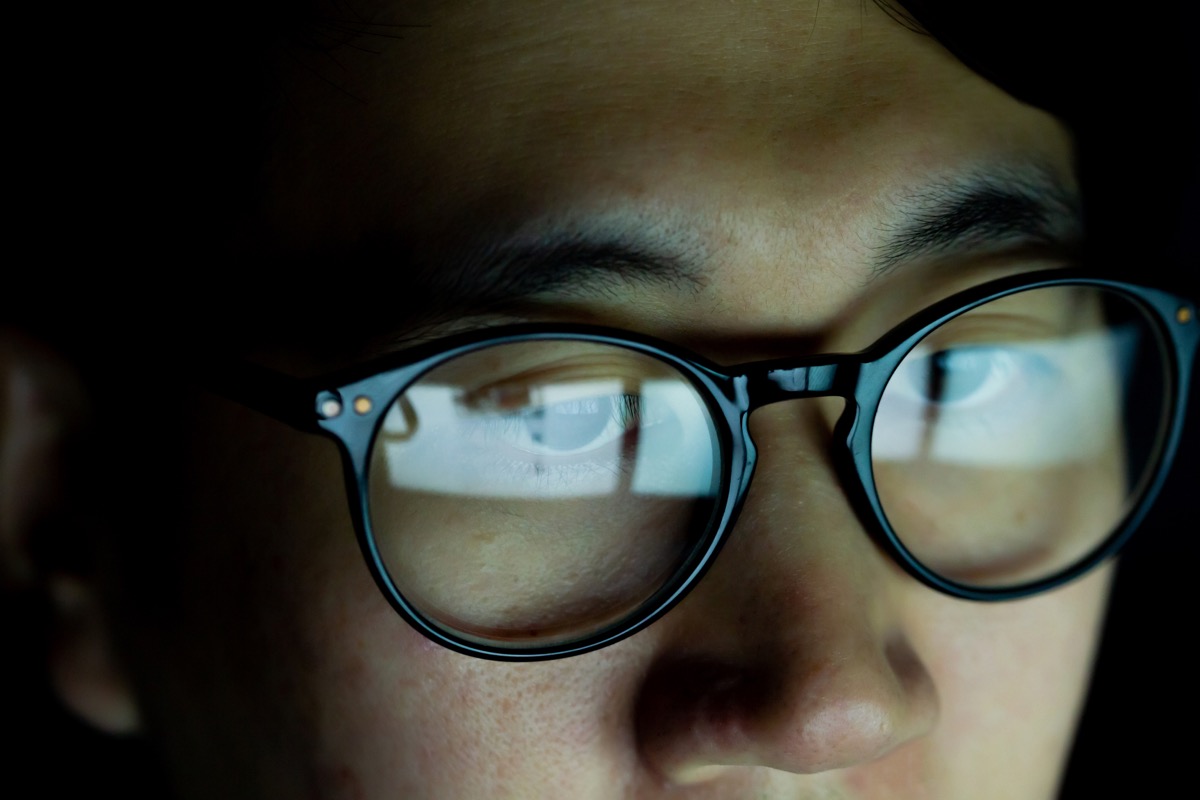
E-readers aren't the only electronic devices that can emit blue light; your phone and TV do too. The good news is, you can protect your eyes from damage with some blue light-blocking glasses.
In a 2017 study, researchers from the University of Houston College of Optometry found that those who sported blue light-blocking glasses a few hours before bedtime had a 58 percent increase in melatonin levels, which helped their sleep overall. That means you can still use your digital devices at night without messing with your precious zzz's.
17
Sleep with your feet outside the covers.
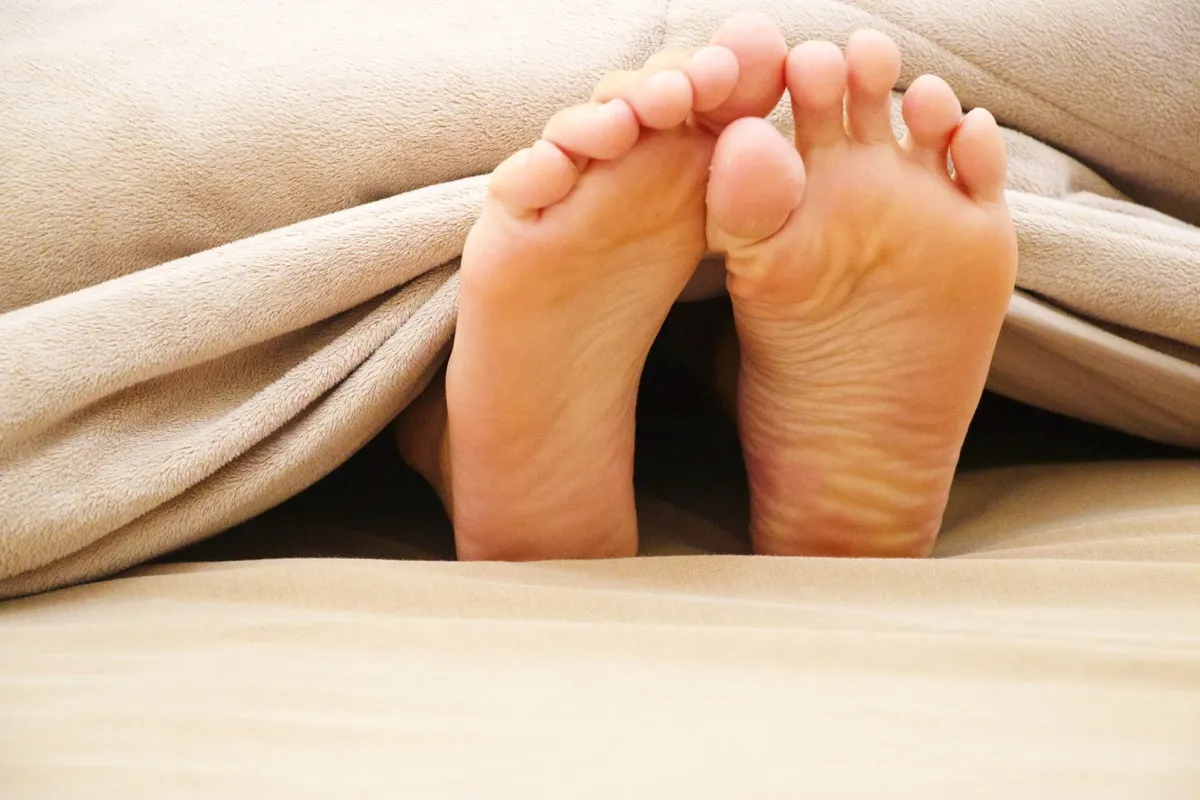
If you already sleep with one foot hanging off the bed, you're on the right track—the habit can seriously benefit your quality of sleep.
Natalie Dautovich, PhD, spokesperson for the National Sleep Foundation, told The Cut that temperature is a huge factor in getting a good night's sleep. And keeping your feet exposed helps ensure that your body doesn't get too hot, which can prevent you from getting that much-needed shut-eye.
18
Skip your nighttime snack.
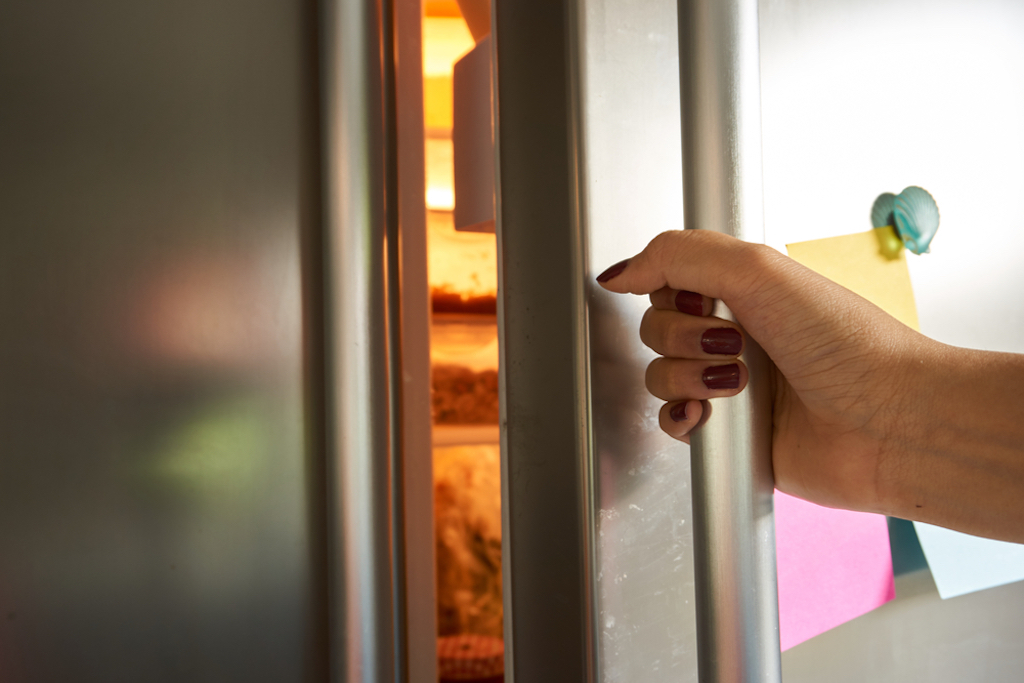
Having a pre-bedtime snack is tempting, but there's a sound scientific reason for avoiding food at least two hours before you go to sleep.
According to the Cleveland Clinic, giving in to the midnight munchies puts your body into full-on digestion-mode, which can involve some major discomfort when you lie down, and keep you from getting the rest you need.
19
Just say no to long naps.
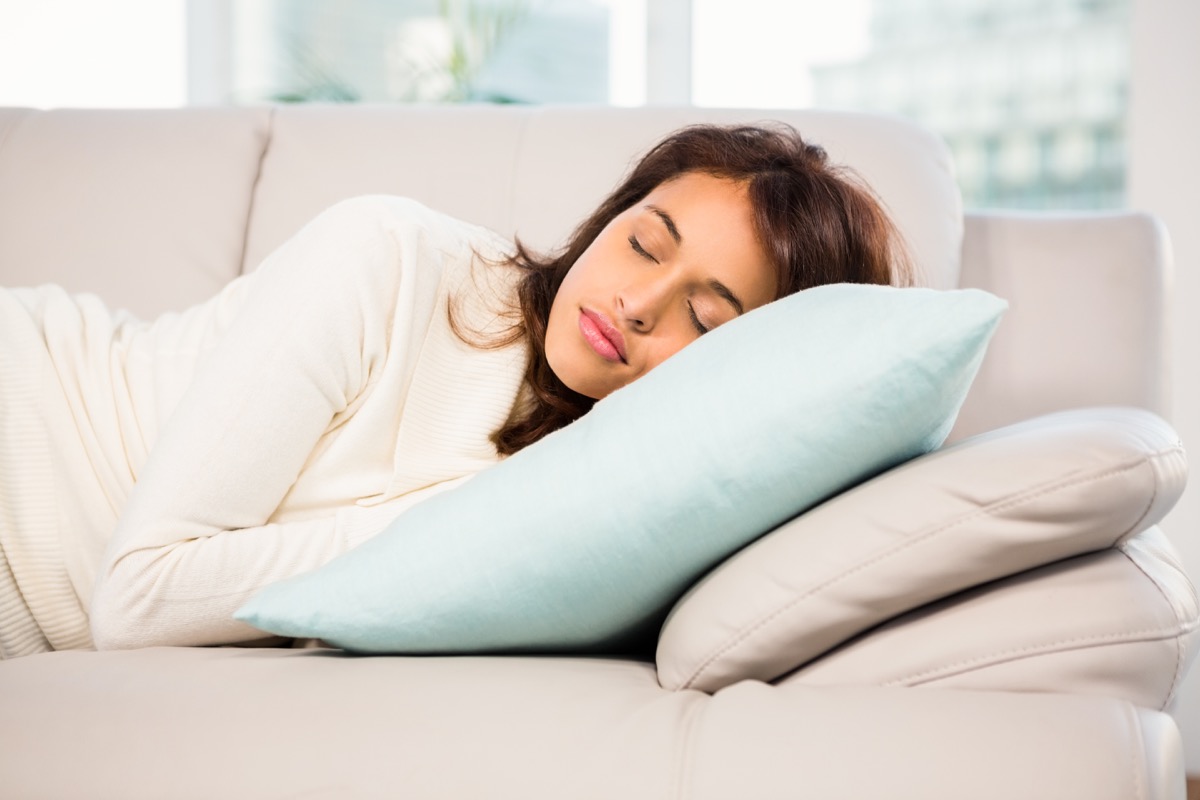
Naps definitely have their perks. They can improve your mood, performance, and memory, but there's a catch: If your mid-day nap stretches for longer than 30 minutes, you'll likely mess up your nightly sleep schedule.
According to the Mayo Clinic, napping can make your insomnia and sleep quality worse. To be safe, stick to a quick 10-minute snooze if you're feeling tired during the day.
20
Rock a sleep mask.
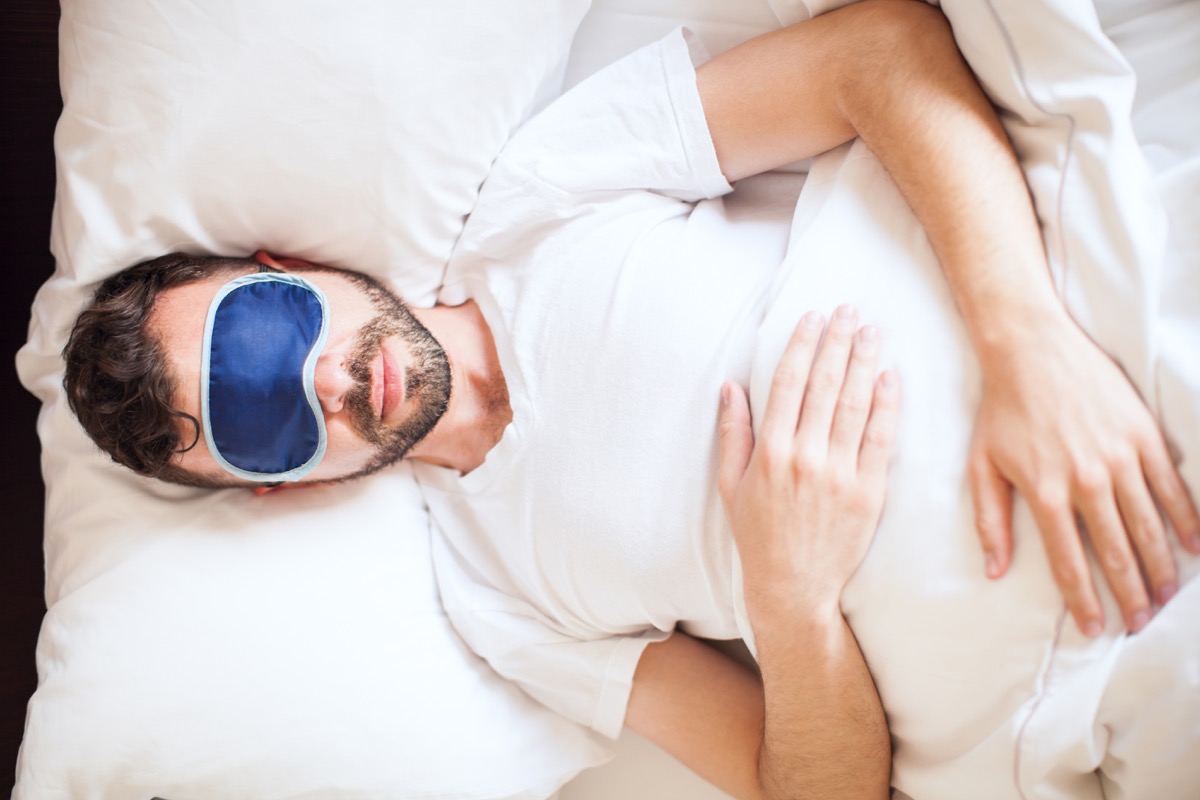
A sleep mask might look silly, but it has an important purpose.
According to the Cleveland Clinic, if you don't have blackout shades, using a sleep mask to block out light not only helps you get better sleep throughout the night, but also allows you to function at your best the next day.









